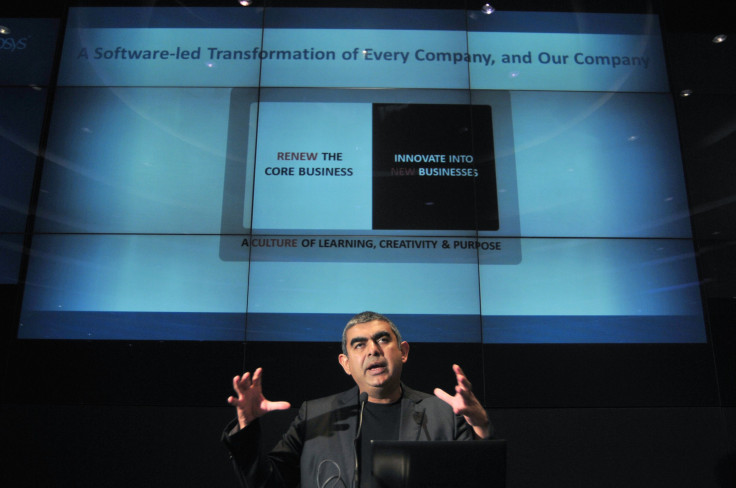Infosys Reports 13% Profit Growth, Commits To Post-Outsourcing Strategy

As wage competition from other developing regions heats up, India’s second-largest outsourcer is looking to grow well beyond its roots as a provider of low-cost tech workers for Western companies. Infosys Ltd. said Friday it will raise its startup capital to $500 million from the $100 million committed last year “to support the creation of a global ecosystem of strategic partners.”
The company, whose cost advantage is under pressure from rising wages and union activity on the subcontinent and wage competition from other developing regions, including South America and Eastern Europe, said the capital will be used to invest into young companies worldwide that innovate in growth areas such as artificial intelligence, automation and the Internet of Things.
Infosys announced the commitment as it reported that profit for the three months ended Dec. 31 rose 13 percent to 32.5 billion rupees ($522 million) from 28.75 billion rupees for the year-earlier period. The numbers beat the street expectation of about a 10 percent increase, sending shares higher by more than 5 percent at close of Mumbai trading. The company follows an April-to-March fiscal year.
Infosys’ increased urgency in seeking technologies and people that can accelerate its transformation in the age of artificial intelligence spotlights the dilemma facing all Indian IT providers, which are key to the country’s larger economy. Traditional outsourcing is increasingly commoditized, but still accounts for two-thirds or more of the $118 billion tech services sector’s revenues.
The impact showed up in Infosys’ results: The Bangalore-based company reported profits rose and margins expanded, with the most increase in the volume of quarterly billable work in three years, but actual revenue realized per billed employee dropped during the quarter, chief executive Vishal Sikka told analysts in a conference on Friday.
“We have to look at this in the longer term as a structural change that is happening in the industry,” Sikka said. “The traditional kind of services or perhaps what we can refer to as yesterday’s services are under tremendous pressure ... at the same time, there is no shortage of demand for innovation.”
Every industry is facing the need to urgently “rethink their future around digital, software and computing technologies. For that kind of next-generation innovation, we see a tremendous demand.”
Sikka, the former chief technology officer of business software giant SAP SE, took over as the first non-founder chief executive of Infosys on Aug. 1 last year. He’s set the company on a strategy of “renew and new,” which involves continued focus on winning traditional large outsourcing contracts that primarily help clients cut costs, while investing in new services and consulting to make the company a more strategic vendor to many of the world’s biggest companies, including Procter & Gamble Co., Deutsche Bank AG, Bank of America Corp., BP PLC, Volkswagen AG and Toyota Motor Corp.
“The strategy is resonating well with customers, which need help defining and executing their digital transformation strategy,” Fred Giron, a vice president at Forrester Research, told International Business Times in an email.
© Copyright IBTimes 2024. All rights reserved.




















